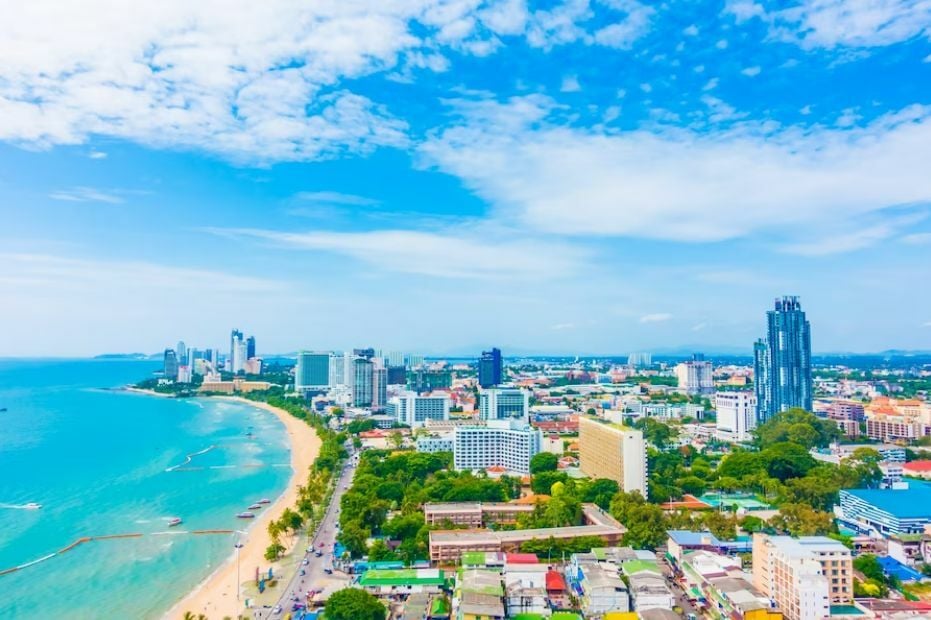Exploring the cost of living for retirees in Thailand

The cost of living for retirees in Thailand has become an increasingly popular topic of discussion, as many individuals from around the world are considering spending their golden years in this beautiful and culturally rich country. Thailand offers a welcoming environment for those looking to enjoy a relaxed and comfortable lifestyle. However, understanding the financial aspects of retiring in this Southeast Asian paradise is crucial for those who wish to make the most of their retirement savings. In this article, we will explore the various factors that contribute to the cost of living for retirees based on locations in Thailand, helping you to make an informed decision about your retirement plans.
Cost of Living for Retirees in Thailand
The cost of living for retirees in Thailand can vary greatly depending on the location. Let us delve into it.
1. Bangkok

The cost of living for retirees in Bangkok, Thailand’s bustling capital city, can vary depending on factors such as housing, utilities, food, healthcare, transportation, and lifestyle choices. As a retiree, it’s essential to consider these costs when planning your move to this vibrant city.
Rent for a one-bedroom apartment in the city center ranges from 8,000 to 30,000 THB ($230-$940) per month depending on which region in Bangkok you are staying. If you prefer a more spacious apartment or a house, prices can go up considerably. Buying property is also an option, but prices can be high in the central areas. Monthly utility bills, including electricity, water, and internet, typically range from 1,500 to 4,500 THB ($43-$140). Keep in mind that air conditioning usage can significantly increase electricity costs and the summers in Thailand can be scorching hot.
The cost of food varies depending on your preferences. Local markets and street food vendors offer budget-friendly meals while dining at restaurants and opting for Western cuisine can be more expensive. On average, you can expect to spend between 6,000 and 15,000 THB ($190-$470) per month on groceries and dining out.
Public healthcare is affordable, but wait times can be longer. While private hospitals in Bangkok offer higher quality care and English-speaking staff, the cost can be higher. Consultations with a specialist doctor at a private hospital can range from 1,000 to 3,000 THB ($30-$90) per visit, while more extensive treatments and procedures can cost significantly more. Many retirees choose to purchase private health insurance to cover their healthcare expenses, and premium costs can vary depending on coverage, age, and pre-existing conditions. Check the costs of comprehensive health insurance plans for retirees HERE.
2. Chiang Mai

The cost of living for retirees in Chiang Mai, a charming city in Northern Thailand, is generally more affordable than in other popular Thai destinations, such as Bangkok or Phuket. Chiang Mai is known for its rich history, beautiful temples, and cooler climate, making it an attractive option for retirees.
Rent for a one-bedroom apartment in the city center ranges from 6,000 to 25,000 THB ($174-$727) per month. Larger apartments or houses can be found at higher prices. The cost of buying property in Chiang Mai is also generally lower compared to Bangkok. Monthly utility costs, including electricity, water, and internet, typically range from 1,000 to 3,500 THB ($29-$110) depending on your usage. As with other locations in Thailand, air conditioning usage can significantly increase electricity expenses.
Chiang Mai offers a wide variety of affordable food options, including local markets, street food vendors, and restaurants, which are generally cheaper than Bangkok. On average, you can expect to spend between 3,500 and 10,000 THB ($100-$310) per month on groceries and dining out. Keep in mind that street food can be cheaper than cooking in!
Private hospitals in Chiang Mai provide higher quality care, English-speaking staff, and shorter wait times but at a higher cost. Consultations with a specialist doctor at a private hospital can range from 1,000 to 2,500 THB ($30-$78) per visit, with more extensive treatments and procedures costing more.
3. Pattaya

The cost of living for retirees in Pattaya, a bustling coastal city on the eastern coast of Thailand, is generally more affordable compared to Bangkok but slightly higher than in Chiang Mai. Rent for a one-bedroom apartment in the city center ranges from 10,000 to 18,000 THB ($290-$520) per month. Larger apartments, houses, or properties closer to the beach can be found at higher prices. The cost of buying property in Pattaya is generally lower than in Bangkok but higher than in Chiang Mai.
Monthly utility costs, including electricity, water, and internet, typically range from 1,200 to 3,000 THB ($34-$87) depending on your usage. As in other Thai cities, air conditioning usage can significantly increase electricity expenses.
With its diverse culinary scene, Pattaya caters to various tastes and budgets, allowing retirees to enjoy a rich dining experience. On average, you can expect to spend between 6,000 and 12,000 THB ($174-$350) per month on groceries and dining out. Similar to other cities, the local Thai cuisine is generally more affordable, while Western and international dishes may be more expensive.
Private hospitals in Pattaya provide higher quality care, English-speaking staff, and shorter wait times but at a higher cost. Consultations with a specialist doctor at a private hospital can range from 1,000 to 2,500 THB ($30-$78) per visit, with more extensive treatments and procedures costing more.
4. Isaan region

The Isaan region, located in the northeastern part of Thailand, offers a unique and more rural experience for retirees. With its authentic Thai culture, traditional lifestyle, and lower cost of living for retirees, the Isaan region is an attractive option for those seeking a quieter and more budget-friendly retirement. Rent for a one-bedroom apartment or house in the Isaan region can range from 3,000 to 7,000 THB ($95-$220) per month, depending on the specific location and type of accommodation. The cost of buying property in this region is also significantly lower compared to more popular Thai cities.
Monthly utility costs, including electricity, water, and internet, typically range from 1,000 to 2,500 THB ($29-$73), depending on your usage. As with other locations in Thailand, air conditioning usage can significantly increase electricity costs.
The Isaan region is known for its distinct and flavorful cuisine, which is generally more affordable than in larger cities. Local markets and street food vendors offer budget-friendly meals, while dining at restaurants can still be reasonably priced. On average, you can expect to spend between 3,500 and 8,000 THB ($100-$232) per month on groceries and dining out.
As you explore the local culinary scene in the Isaan region, you can enjoy a variety of traditional dishes, such as spicy papaya salad (som tum), grilled chicken (gai yang), and sticky rice (khao niao). While international cuisine options may be limited compared to larger cities, the authentic Thai food experience in the Isaan region is both delicious and affordable!
While the region has public hospitals that offer affordable care, the quality of care and availability of English-speaking staff may not be on the same level as larger cities or private facilities. For more specialized treatments or higher-quality care, some retirees may need to travel to nearby cities or larger hospitals.
5. Phuket

The cost of living for retirees in Phuket, a popular island destination in the south of Thailand, is generally higher than in other parts of the country, such as Chiang Mai or the Isaan region. Known for its stunning beaches, vibrant nightlife, and numerous amenities, Phuket attracts many retirees seeking a tropical paradise lifestyle.
Rent for a one-bedroom apartment in the city center ranges from 10,000 to 20,000 THB ($310-$620) per month. Larger apartments or houses, as well as properties closer to the beach or in more exclusive areas, can be found at higher prices. The cost of buying property in Phuket is generally higher than in other Thai cities, except for Bangkok. Monthly utility costs, including electricity, water, and internet, typically range from 2,000 to 4,500 THB ($58-$130). As with other locations in Thailand, air conditioning usage can significantly increase electricity expenses.
Phuket’s food prices on average are higher than other cities. On average, you can expect to spend between 10,000 and 25,000 THB ($290-$720) per month on groceries and dining out. Of course, eating in and dining in local places can decrease your spendings while dining out can be expensive. But, Phuket has an expansive culinary scene so don’t miss out on all the delicious food and dine out from time to time!
Private hospitals in Phuket provide higher quality care, English-speaking staff, and shorter wait times but at a higher cost. Consultations with a specialist doctor at a private hospital can range from 1,000 to 3,000 THB ($30-$90) per visit, with more extensive treatments and procedures costing more.
Considering retiring in Thailand?
If you are considering retiring in Thailand, it may highly interest you to read our guide on the top facts you must know before you retire in Thailand.
Latest Thailand News
Follow The Thaiger on Google News:


























